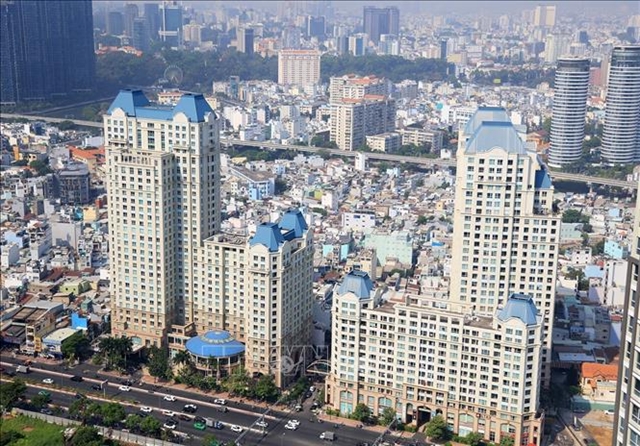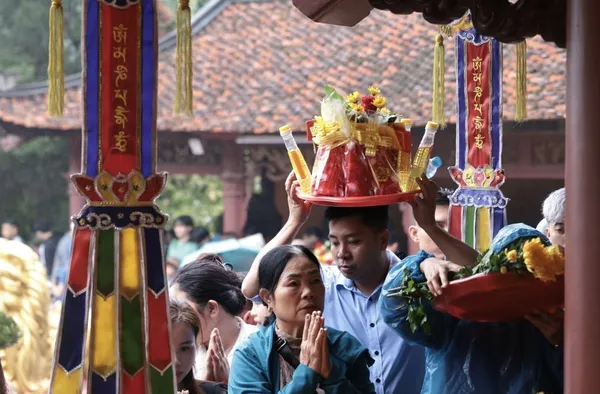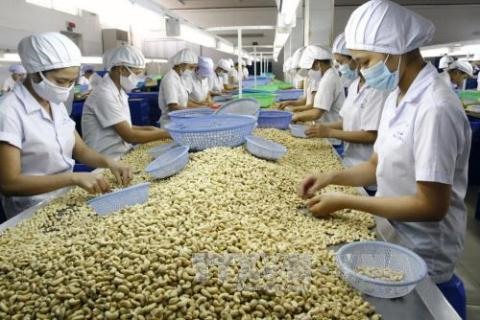 Economy
Economy

The Vietnamese cashew sector is calling for an US$800 million credit package from commercial banks to better serve its exports, as heard at a seminar held in HCM City late last week.
 |
| Workers at the Nhật Huy cashew processing company in Bình Dương Province. — VNA/VNS Photo Đình Huệ |
HCM CITY — The Vietnamese cashew sector is calling for an US$800 million credit package from commercial banks to better serve its exports, as heard at a seminar held in HCM City on July 6.
Speaking at the meeting, Nguyễn Đức Thanh, chairman of the Việt Nam Cashew Association (Vinacas), said producers are facing such a shortage of raw materials that some have even suspended operations. Thus, cashew processors want more credit from banks to import raw nuts to increase production for export.
In Long An Province for instance only 12 out of 33 processors firms remain operational, while in Bình Phước 80 per cent of companies, mostly small and micro enterprises, have stopped operations.
India, one of the world’s largest cashew producers and processors, is facing a similar problem.
In Kollam city in Kerala state, the cashew capital of India, 70 per cent of enterprises have shut down and file for bankruptcy.
According to cashew nut exporters, banks are hesitant to disburse loans due to fluctuations in cashew nut prices. Several banks disagreed to offer additional loans after maturity, forcing firms to sell up cashew nut stocks in order to maintain a floating capital.
Cao Thúc Uy, director of the Cao Phát Joint Stock Company, a cashew producer based in Bà Rịa – Vũng Tàu Province and a Vinacas member, said banks are reluctant to lend to cashew producers because the nut’s prices have been volatile recently.
Some do not renew loans that are repaid, forcing companies to sell their cashew for working capital, he said.
“This pushes prices down even further.”
Since demand for cashew in Việt Nam’s export markets has remained steady this year, Vietnamese processors have exhausted their stocks and need to import around 1.1 million tonnes of raw materials for production.
But this is a challenge because they lack funds, he added.
According to Vinacas, this year Việt Nam’s cashew exports have been worth nearly US$1.9 billion, 25.2 per cent up year-on-year.
Meanwhile, import of raw cashew plunged by 46 per cent to a mere 363,000 tonnes.
Thanh said the financial difficulties faced by companies in the last couple of months due to higher raw material prices and falling cashew prices are “temporary.”
Recently they have renegotiated raw cashew prices, which have been cut by $150-300 per tonne as a result, and this has encouraged them to expand production, he said.
The International Nut Council forecast global cashew prices to rise by 6 per cent a year since demand is rising. As inventories run out, cashew enterprises need to tap opportunities to import materials for processing and export.
Vinacas estimated that nearly 500,000 tonnes of raw cashew are en route to Việt Nam or stuck in bonded warehouses. It promised to provide banks with a list of “prestigious” cashew export and import enterprises so that they will have a base for lending money.
Nguyễn Quốc Phong, customer relationship director of Eximbank, which has been lending to cashew producers for the last 20 years, said his bank still has a lot of “room” for cashew producers.
But since banks have now tightened credit and set “stricter criteria” for firms, cashew companies have to provide more detailed financial reports and prove the commercial viability of their business for banks to lend, he said.
“Normally cashew producers’ registered capital is quite small. So banks cannot lend them a big amount of money.”
Thanh said he is willing to work with banks to provide them information about the cashew industry and help firms submit all the documents required by banks for loans.
Last year, Việt Nam’s cashew exports topped $3.6 billion, becoming the largest farm produce to be exported.
The US remained the largest importer of Vietnamese cashew, buying 35 per cent of its exports, followed by China with 10 per cent. — VNS